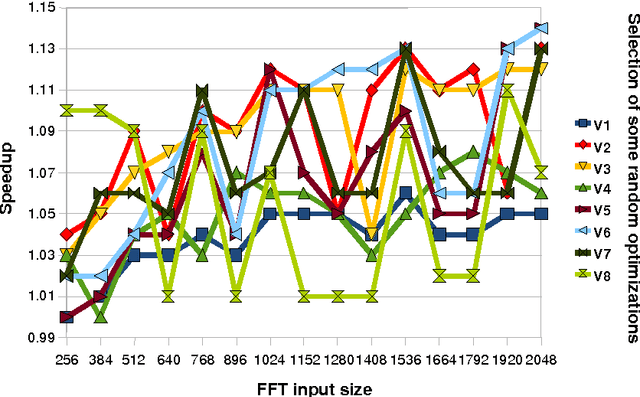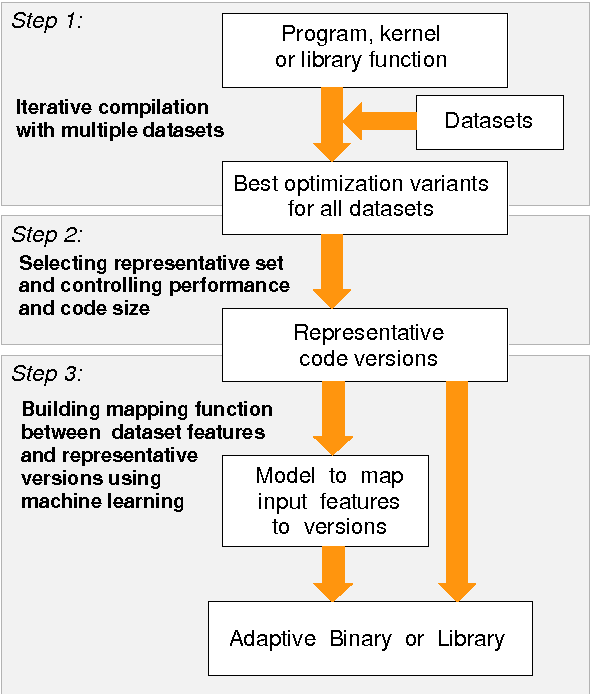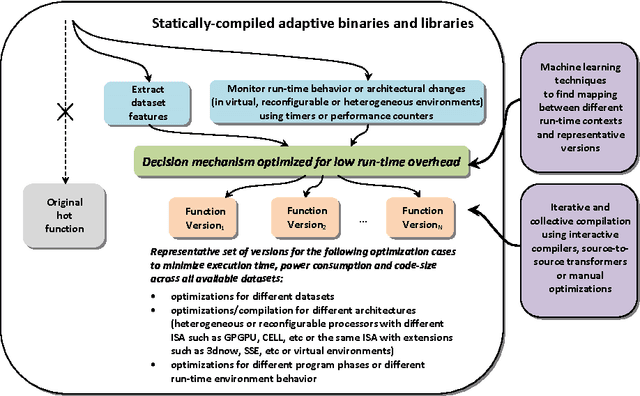Finding representative sets of optimizations for adaptive multiversioning applications
Paper and Code
Jul 14, 2014



Iterative compilation is a widely adopted technique to optimize programs for different constraints such as performance, code size and power consumption in rapidly evolving hardware and software environments. However, in case of statically compiled programs, it is often restricted to optimizations for a specific dataset and may not be applicable to applications that exhibit different run-time behavior across program phases, multiple datasets or when executed in heterogeneous, reconfigurable and virtual environments. Several frameworks have been recently introduced to tackle these problems and enable run-time optimization and adaptation for statically compiled programs based on static function multiversioning and monitoring of online program behavior. In this article, we present a novel technique to select a minimal set of representative optimization variants (function versions) for such frameworks while avoiding performance loss across available datasets and code-size explosion. We developed a novel mapping mechanism using popular decision tree or rule induction based machine learning techniques to rapidly select best code versions at run-time based on dataset features and minimize selection overhead. These techniques enable creation of self-tuning static binaries or libraries adaptable to changing behavior and environments at run-time using staged compilation that do not require complex recompilation frameworks while effectively outperforming traditional single-version non-adaptable code.
 Add to Chrome
Add to Chrome Add to Firefox
Add to Firefox Add to Edge
Add to Edge